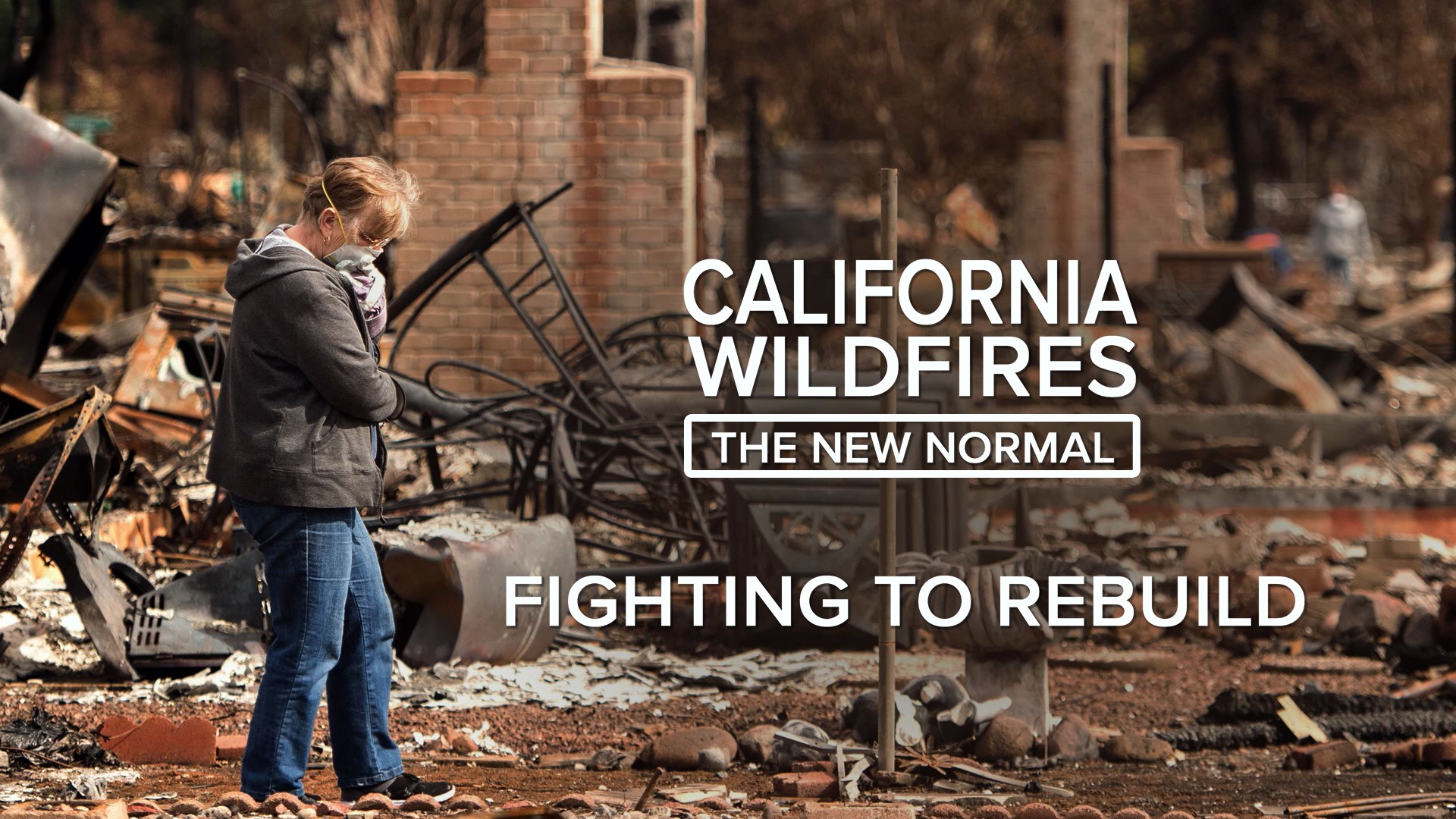CALIFORNIA, USA — California is known for wildfires, but most of those fires could have been prevented. According to Cal Fire, over 1,600 fires a year, both small and large, are caused by equipment usage.
Lawnmowers, tractors, harvesters, chain saws, weed-eaters, motorcycles — even tools for home improvement projects have been known to cause fires when they cause a spark.
And if you're found to be the one who caused a fire, it could get expensive. Even if it was an accident. Below is a list explaining how some California wildfires started, and how the state fined the person behind the spark.
SPARK-STARTED FIRES
Bear Fire - A man was found guilty of starting a fire with a lawnmower that burned 10,400 acres and 30 buildings. He served two years of a four-year prison sentence and was fined $2.4 million
Mountain Fire - This fire burned about 27,500 acres after being started by an electrical box on a person's property. A settlement was ultimately reached for roughly $1.5 million.
Cedar Fire - The Cedar Fire was caused by a lost deer hunter in San Diego County's Cleveland National Forest. The hunter was lost on a hunting trip and the fire that he used to signal rescuers eventually grew out of control. About 273,000 acres and 2,800 buildings were burned. 15 people died.
Carr Fire - One of the most destructive fires in state history was caused by a spark from a steel rim hitting pavement. A vehicle pulling a trailer had a tire blow out and the resulting sparks lit up dry grass. The fire tore through 229,000 acres and about 1,600 buildings. Eight people died.
Rim Fire - This fire started as an illegal camp fire that got out of control. 257,000 acres and 112 buildings burned in Tuolumne County.
Mendocino Complex Fire - The biggest wildfire in state history was started by the sparks from a hammer. After a hammer struck a metal stake into the ground and a spark landed on dry grass. 459,123 acres burned along with 280 buildings. One person died.
In some cases like the Mountain Fire and Bear Fire, the people responsible might face charges for negligence, liability of public resources, liability for health and safety, trespass by fire and even interest and penalties.
FUEL FOR THE FIRE SEASON
California has an abundance of grass, which is fuel for a fire. That makes the 2019 fire season especially dangerous.
The heat this year has been put off a couple of weeks due to the impending rainstorms, however, the delay pushes wildfire season even further onto the calendar.
It's no longer rare to see some of the biggest wildfires, like the Camp Fire, burning from November into December.
AVOIDING A FIRE
Creating defensible space around a home can help keep it safe if a wildfire approaches. That includes clearing out weeds, dry grass, and other dead vegetation. Trimming trees and clearing gutters can also be important, but it’s how you go about clearing this space that could be the difference between causing a fire and preventing one.
- Any yard maintenance that requires an electric or gas motor should not be used when wildfire conditions are present, like the extreme heat and/or windy weather
- Lawn work should be done before 10 a.m. before the heat hits and should be intended for lawns - not for dry grass or weeds.
- Before lawn work, remove any rocks that may be hiding in tall grass or be present around your lawn. Metal hitting rocks can cause a spark.
- Keep your mowers and engines free of dust, oil, or flammable material.
- Avoid pulling your vehicle or trailer into a gravel area where dry grass is present. Hot exhaust pipes and mufflers may trigger a fire. Also, chains from trailers may spark a fire.
- Any welding operations should have 10 feet of clearance and spark shield equipment
- Always have a fire extinguisher accessible or water hose ready for potential fire risks.
Call 9-1-1 immediately if a fire ignites.
WATCH ALSO: California Wildfires: The New Normal

